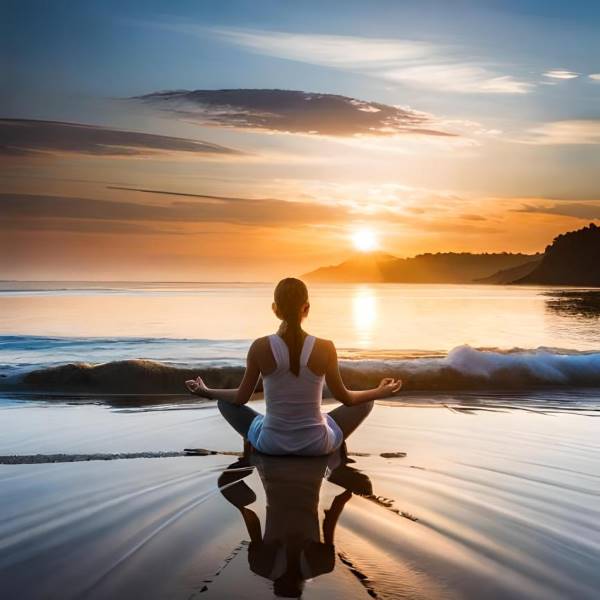Introduction
Despite the busy nature of our lives today, it is difficult to determine our true characters. We become so engrossed in meeting the requirements of our work days, maintaining connections and fitting within society that we neglect perhaps the most crucial relationship of all – with ourselves. However, amidst disorder and unrest, there lies an effective approach just a step away from us; self-analysis.
This is not something you can just think about for a moment and feel better. However self-reflection is much more than just navel gazing – through which we are able dig deep enough in order find out who really are and what we can do about it. But it takes patience, time, and most importantly, courage to develop this skill – because one must be ready to face not only favorable but also unfavorable conditions of his/her life presence.
Table of Contents
This article focuses on how thinking about oneself can help a person develop and stay healthy. By using some methods and techniques that will help you discover yourself better, I seek to make your life better. So let us begin our journey inside ourselves.

Importance of Self-Reflection
Firstly, it is crucial to comprehend the essence of self-reflection before discussing its applicability. Through self-reflection, we are able to identify who really we are and learn how we can grow better. This entails taking a moment to pause and turn our attention inward so that we may analyze what goes within us such as our thoughts, emotions, and behaviors; this practice is commonly known as self-reflection from which we may gather data about ourselves.
Self-reflection provides room for one important thing – self-evaluation. It enables one to determine their strongholds, weaknesses, as well as areas they need to work on. Being sincere and objective with your own character can allow you see certain tendencies or practices which may prevent you from giving out your best in everything that you do. This reveals to us some certain types of beliefs that we have imposed on ourselves and put some limitations in our growth.
Moreover, self-reflection gives us the ability to act rightly. With deeper knowledge of yourself, you can easily identify what matters most to you including your targets either long term or short term. As soon as we understand this information about ourselves deeply now, there is a new found clearness that enables us follow through with our plans honestly because it matches with what we want out of life and not vice versa. It takes us out of living a controlled existence that is characterized by following other people’s expectations at the expense ours and steers towards satisfaction as well as honesty filled life.
Techniques for Self-Reflection
Having understood how crucial it is to think deeply about ourselves, we can now consider various ways through which we can achieve this change.
Journaling:
Writing is a powerful tool for the self-reflection. Set aside in a specific time every day or week when you can sit down with your pen and paper or digital notebook and empty out what’s inside of yourself. Let the words come out honestly and naturally without any judgment from yourself. As one writes he may bring out tears, see clearly the mountain difficulties which he had not realized before, get views of a fresh kind looking towards his progress on earth in relation to overcoming character hazards or obstacles.
Meditation:
This is where meditation comes in as a means for developing mindfulness and self-awareness. Create a peaceful environment where you can easily sit and concentrate on breathing evenly. When thoughts come up, just watch them nonjudgmentally and let them pass on their own. Through meditation done regularly, you will be able to strengthen that inner voice, which would tell you what should be done by itself alone, separate out all of your external distractions, and understand who really are you and what do you want from life?
Mindful Observation:
Amidst our everyday lives, we can engage in mindful observation. Take several moments during the day to stop and watch what crosses your mind, how you feel, and what you do. Monitor how you act in different kinds of situations and consider what causes you to behave that way. Watching yourself carefully like this will enable identification of certain tendencies or issues that require personal development. Such consciousness helps one to make deliberate choices rather than acting on impulse.
Seeking Feedback:
At times we are not objective about ourselves. Asking for opinions from close friends, relatives or teachers can be very helpful. There are things that others see in us which we may fail to notice. Be ready to accept justified condemnation and take it positively in order to grow and become better.
The Benefits of Self-Reflection
Engaging in regular self-reflection brings forth numerous benefits that positively impact our overall well-being and personal development.
Self-Awareness:
The exercise helps individuals to note important aspects about themselves which include but not limited to strength, weaknesses, principles and morals. This process of understanding who we are assists in us being true to ourselves and making honest decisions that result in a satisfying life. Moreover, it creates a strong basis for one’s individual growth and change efforts.
Emotional Intelligence:
Self-reflection improves emotional intelligence, which is crucial in determining how we relate with others as well as understand ourselves and those around us at deep levels. Knowing what one feels enables effective regulation of the same and gentle response towards other people. With this heightened emotional quotient, we can create better and more valuable links among each other.

Clarity and Direction:
Self-reflection provides insight into what matters most in terms of objectives, values, and dreams. Deep exploration of oneself enables identification of innermost longings or wishes. By assisting us stay focused on important things in life such as goals and objectives, it makes it easier for us to overcome challenges on a determined path of accomplishing certain objectives.
Personal Growth:
Reflection speeds up personal growth and development because it encourages one to take positive action towards improving themselves. Recognizing areas that need improvement and engaging in meaningful effort toward change enable us to surpass self-imposed limitations, learn new things, and increase our capacity. It promotes continuous voyage of self-discovery and change; whereby we welcome fresh events, make errors from which learn and keep on improving ourselves more and more.
Overcoming Challenges in Self-Reflection
Self-reflection is a process that is difficult and challenging at times too. It has its own obstacles which we must overcome completely in order to benefit from it. Listed below are some typical issues and ways of dealing with them:
Resistance and Avoidance:
One may easily resist or feel uneasy looking into oneself. The fear of the unknown and difficulties in facing some parts of ourselves are normal phenomena experienced by many individuals. Approaching self-reflection with compassion and curiosity can help overcome this challenge. Affirm that self-reflection is a secure as well as positive experience. Start with little ones, then increase your ability to think and feel on deeper levels over time.
Self-Judgment and Criticism:
As we notice our weaknesses more, self-judgment and criticism may arise while engaging in self-reflection. This should be countered through nurturing self-kindness and self-appraisal in the course of this activity. Don’t forget that the self-reflection doesn’t involve the identification of culprits or blaming others. Instead, it should be seen as a way to know oneself better while operating from a position of the warmth and affection. Give yourself the same love, forgiveness, compassion and patience as you would give it to someone close to your heart.
Time and Commitment:
The challenge of finding enough time for one’s self amidst the daily activities is real in today’s busy world. Nevertheless, this exercise should take precedence. Allocate specific periods, even if it means just few minutes every day, for self-reflection. Make a ritual out of it or fit it into your daily schedule. Your commitment to yourself demonstrates that you consider your personal development and health important.
Integrating Self-Reflection into Daily Life
One way of ensuring that self-reflection has a deep effect is by making it part and parcel of our day to day engagements. It does not exist on its own but rather as an approach to life and the environment. Below are a few recommendations for incorporating self-reflection into your everyday routine:
Mindful Awareness:
Develop the practice of being consciously aware throughout your day. Stay here and now, monitor your thoughts, feelings, bodily experiences with neutrality, thinking how they lead you to move or react. By doing this continuously, you will be able to choose rightly and follow only what your inner self tells you.

Gratitude Practice:
Make sure that you follow a gratitude practice plan in your day always. Spare some minutes daily to remember why it is good to be alive today. This practice will help turn around the negative ones towards positive sides giving birth a mindset whereby everything is seen as more than enough and duly recognized.
Regular Check-Ins:
Allocate some alone time every now and then for regular check-ins with yourself. Plan periods when you can be alone and think so that you evaluate your well-being, priorities, congruence with yourself and aspirations. Through these check-ins, use the opportunity to correct anything that may be wrong in your life so that you remain true to yourself.
Cultivate Supportive Relationships:
Build relationships with individuals who encourage you in your reflection about yourself. Have deep talks with close friends, relatives or wise advisers who support your development and give you important advice. This will help create an empathic, caring environment where they can all grow together.
Conclusion
Self-reflection is an important activity which can reveal who truly we are leading to a better and genuine life. Despite societal pressures for affirmation and instruction, self-analysis calls on us to attend our innermost being and attend to what it tells us.
This is where we stop for a while and think about some other ways like writing in a diary, meditation or being observant, as well as gathering opinions, for us to find ourselves. By engaging in this process we learn about ourselves – who we really are – develop emotional quotient, get determined, grow and ultimately become satisfied. Self-reflection in itself is not a place but rather an endless practice of moving back and forth in relation to oneself — seeking to identify one’s own issues and make them better.
Therefore, pause for a moment, look inside yourself and follow the path of reflection. Determine your authentic identity and tap into your inherent talents that are just waiting to be uncovered. Take part in the beautiful practice of self-reflection and may it lead you into living a meaningful, real, and very intense life!

FAQs
Q1: How often should I engage in self-reflection?
A1: It depends on how often one thinks that he or she should look into his or herself. Some people prefer reflecting about their lives at the end of every day; others would rather do so every month or even less frequently. However, whatever you decide upon should fit easily around your other daily activities and remain regular in nature too.
Q2: What if self-reflection brings up uncomfortable emotions?
A2: When one engages in self-reflection, it may expose suppressed feelings as well as trauma. It is normal to feel uneasy or exposed when engaging in such activities. In case of such an event where you feel like you cannot cope alone take some time for yourself and seek help from those close to you or professionals available for this purpose.
Q3: Can self-reflection help with decision-making?
A3: Of course, self-reflection makes someone be very wise in making decisions. The process of looking inside oneself enables one to know what he/she wants and likes hence helping in proper decision making which is part of being real and having a significant result or effect.
Q4: Is self-reflection a one-time practice, or should it be ongoing?
A4: Self reflection should be practiced throughout ones life. We get to know ourselves better as we grow older. Self reflection allows us change with ease, overcome difficulties and continue developing ourselves.
Q5: Can self-reflection improve relationships?
A5: Definitely. Reflection increases personal consciousness as well as ability to understand and manage emotions required in good interaction with other people.
By understanding ourselves better, we can empathize with others, communicate effectively, and cultivate more meaningful connections. Remember that this is your journey alone and no two ways about it; therefore take heed in following its course by living truthfully and completely satisfied with yourself.


